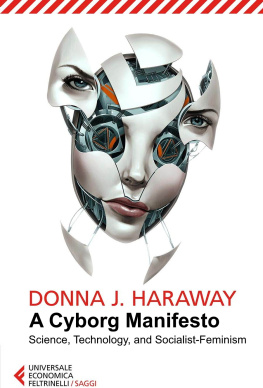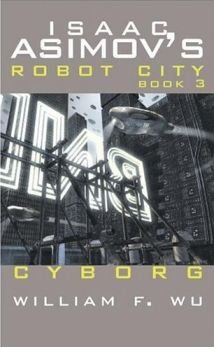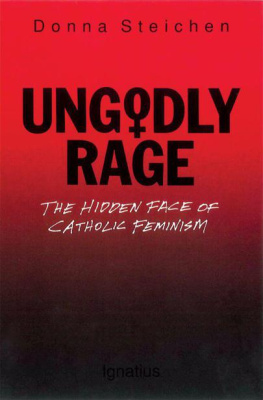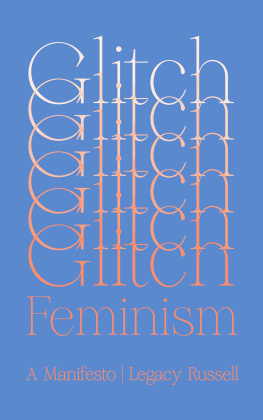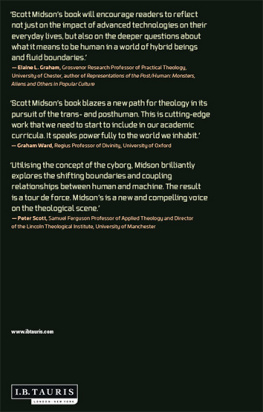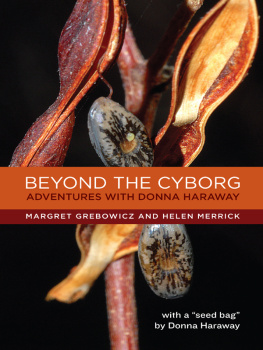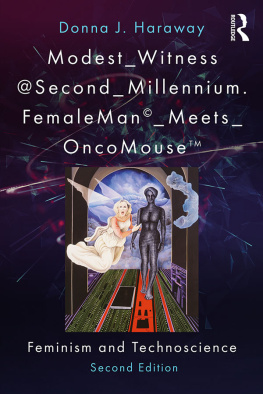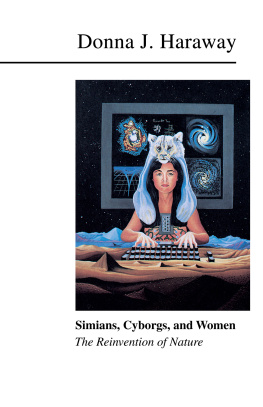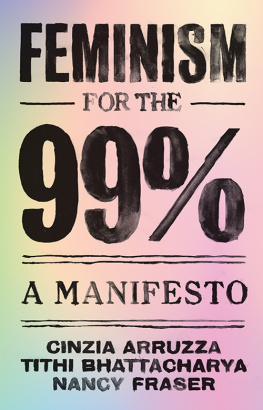An Ironic Dream of a Common Language for Women in the integrated Circuit
This essay is an effort to build an ironic political myth faithful to feminism, socialism, and materialism. Perhaps more faithful as blasphemy is faithful, than as reverent worship and identification. Blasphemy has always seemed to require taking things very seriously. I know no better stance to adopt from within the secular-religious, evangelical traditions of United States politics, including the politics of socialist feminism. Blasphemy protects one from the moral majority within, while still insisting on the need for community. Blasphemy is not apostasy. Irony is about contradictions that do not resolve into larger wholes, even dialectically, about the tension of holding incompatible things together because both or all are necessary and true. Irony is about humour and serious play. It is also a rhetorical strategy and a political method, one I would like to see more honoured within socialist-feminism. At the centre of my ironic faith, my blasphemy, is the image of the cyborg.
A cyborg is a cybernetic organism, a hybrid of machine and organism, a creature of social reality as well as a creature of fiction. Social reality is lived social relations, our most important political construction, a world-changing fiction. The international womens movements have constructed womens experience, as well as uncovered or discovered this crucial collective object. This experience is a fiction and fact of the most crucial, political kind. Liberation rests on the construction of the consciousness, the imaginative apprehension, of oppression, and so of possibility. The cyborg is a matter of fiction and lived experience that changes what counts as womens experience in the late twentieth century. This is a struggle over life and death, but the boundary between science fiction and social reality is an optical illusion.
Contemporary science fiction is full of cyborgscreatures simultaneously animal and machine, who populate worlds ambiguously natural and crafted. Modern medicine is also full of cyborgs, of couplings between organism and machine, each conceived as coded devices, in an intimacy and with a power that was not generated in the history of sexuality. Cyborg sex restores some of the lovely replicative baroque of ferns and invertebrates (such nice organic prophylactics against heterosexism). Cyborg replication is uncoupled from organic reproduction. Modern production seems like a dream of cyborg colonization work, a dream that makes the nightmare of Taylorism seem idyllic. And modern war is a cyborg orgy, coded by C3I, command-control-communication-intelligence, an $84 billion item in 1984s US defence budget. I am making an argument for the cyborg as a fiction mapping our social and bodily reality and as an imaginative resource suggesting some very fruitful couplings. Michael Foucaults biopolitics is a flaccid premonition of cyborg politics, a very open field.
By the late twentieth century, our time, a mythic time, we are all chimeras, theorized and fabricated hybrids of machine and organism; in short, we are cyborgs. This cyborg is our ontology; it gives us our politics. The cyborg is a condensed image of both imagination and material reality, the two joined centres structuring any possibility of historical transformation. In the traditions of Western science and politicsthe tradition of racist, male-dominant capitalism; the tradition of progress; the tradition of the appropriation of nature as resource for the productions of culture; the tradition of reproduction of the self from the reflections of the otherthe relation between organism and machine has been a border war. The stakes in the border war have been the territories of production, reproduction, and imagination. This chapter is an argument for pleasure in the confusion of boundaries and for responsibility in their construction. It is also an effort to contribute to socialist-feminist culture and theory in a postmodernist, non-naturalist mode and in the utopian tradition of imagining a world without gender, which is perhaps a world without genesis, but maybe also a world without end. The cyborg incarnation is outside salvation history. Nor does it mark time on an oedipal calendar, attempting to heal the terrible cleavages of gender in an oral symbiotic utopia or post-oedipal apocalypse. As Zoe Sofoulis argues in her unpublished manuscript on Jacques Lacan, Melanie Klein, and nuclear culture, Lacklein, the most terrible and perhaps the most promising monsters in cyborg worlds are embodied in non-oedipal narratives with a different logic of repression, which we need to understand for our survival.
The cyborg is a creature in a post-gender world; it has no truck with bisexuality, pre-oedipal symbiosis, unalienated labour, or other seductions to organic wholeness through a final appropriation of all the powers of the parts into a higher unity. In a sense, the cyborg has no origin story in the Western sense a final irony since the cyborg is also the awful apocalyptic telos of the Wests escalating dominations of abstract individuation, an ultimate selfuntied at last from all dependency, a man in space. An origin story in the Western, humanist sense depends on the myth of original unity, fullness, bliss and terror, represented by the phallic mother from whom all humans must separate, the task of individual development and of history, the twin potent myths inscribed most powerfully for us in psychoanalysis and Marxism. Hilary Klein has argued that both Marxism and psychoanalysis, in their concepts of labour and of individuation and gender formation, depend on the plot of original unity out of which difference must be produced and enlisted in a drama of escalating domination of woman/nature. The cyborg skips the step of original unity, of identification with nature in the Western sense. This is its illegitimate promise that might lead to subversion of its teleology as Star Wars.
The cyborg is resolutely committed to partiality, irony, intimacy, and perversity. It is oppositional, utopian, and completely without innocence. No longer structured by the polarity of public and private, the cyborg defines a technological polls based partly on a revolution of social relations in the oikos, the household. Nature and culture are reworked; the one can no longer be the resource for appropriation or incorporation by the other. The relationships for forming wholes from parts, including those of polarity and hierarchical domination, are at issue in the cyborg world. Unlike the hopes of Frankensteins monster, the cyborg does not expect its father to save it through a restoration of the garden; that is, through the fabrication of a heterosexual mate, through its completion in a finished whole, a city and cosmos. The cyborg does not dream of community on the model of the organic family, this time without the oedipal project. The cyborg would not recognize the Garden of Eden; it is not made of mud and cannot dream of returning to dust. Perhaps that is why I want to see if cyborgs can subvert the apocalypse of returning to nuclear dust in the manic compulsion to name the Enemy. Cyborgs are not reverent; they do not re-member the cosmos. They are wary of holism, but needy for connectionthey seem to have a natural feel for united front politics, but without the vanguard party. The main trouble with cyborgs, of course, is that they are the illegitimate offspring of militarism and patriarchal capitalism, not to mention state socialism. But illegitimate offspring are often exceedingly unfaithful to their origins. Their fathers, after all, are inessential.

